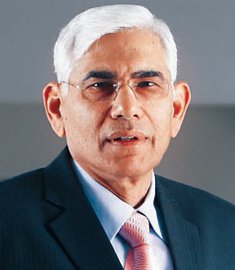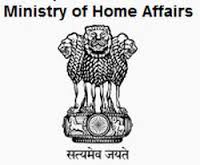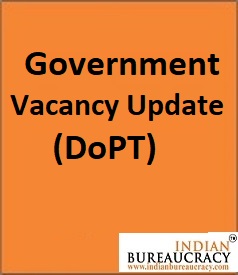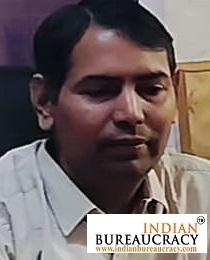Over the years, Public Sector Banks (PSBs) have accumulated huge stressed assests as a result over leveraging by the corporates, said Mr Vinod Rai, Chairman, Banks Board Bureau (BBB), Government of India during the CII Banking & Finance Summit on ‘Building India through a Stronger Financial Sector’ organised by Confederation of Indian Industry (CII) here today. This resulted in banks, particularly the PSBs going slow on the credit. BBB is analysing these stress assets and will put forward an intermediary mechanism to settle them. RBI is also preparing guidelines on the issues faced in case of joint lending by banks. Mr Rai was hopeful that all these will facilitate in cleaning the balance sheet of the banks. In this regard, a roadmap will be ready by 15th June so that a certain degree of comfort can be provided in the decision making process.
Mr Rai urged experts from various professions to come forward and offer their services in the boards of the banks. This will be paradigm shift and will create an ecosystem for emergence of large, strong and professionally run financial institutions and banks in the country. He also called for instilling an element of transparency, ethics and probity in the business of the financial sector in the backdrop of the loss of trust between Government to Business, Business to Business as well as with financial institutions and business.
Highlighting the essence of the financial inclusion in the Indian economy, Dr Harsh Kumar Bhanwala, Chairman, NABARD highlighted that financial inclusion essentially involves understanding about the pertinent requirements of the unbanked population. The focus should be on providing banking solutions at a reasonable cost and in a fair and transparent manner. Financial inclusion has three crucial elements of financial capital, social capital and technology capital, he added.
While commenting on the Jan Dhan Yojana, Mr Rakesh Sethi, Executive Director, Union Bank of India said that tremendous efforts have been made both by the Government and the PSBs to make this a great success and to reach out to the unbanked population. PSBs have taken up financial inclusion in a mission mode owning it up as a social responsibility, which is evident from the fact that as much as 78 per cent of the overall financial inclusion achieved in the country were done by them, he added.
Mr Sethi advocated for greater role of Micro Finance Institutions (MFIs) and NBFCs as they work at the grassroots level and they then compliment the formal banking channels to reach out to bottom of the pyramid.
Considering non-availability of adequate financing of infrastructure projects as a consistent concern, Mrs Rumjhum Chatterjee, Chairperson, CII Northern Region & Group Managing Director – HCD, Feedback Infra Pvt Ltd expressed the need for concerted efforts, and holistic policy and regulatory framework. Grant of in-principle licenses to the small finance banks and payment banks is an important move towards achieving financial inclusion and hence the supply side of banking needs of the unbanked population is being taken care of. However, on the demand side, these banks should cater to the specific needs of masses to remain sustainable, opined Mrs Chatterjee.
Initiatives taken by the Government with respect to recapitalisation of banks will definitely improve the asset quality of the PSBs, said Mr Rajesh Srivastava, Chairman, CII Banking & Finance Summit and Chairman & Managing Director, Rabo Equity Advisors Pvt Ltd. The new and long-term financing measures for infrastructure sector can be a game changer, he remarked. Leveraging the bond market appropriately can open the floodgate of opportunities to corporates, in particular for the infrastructure sector, Mr Srivastava suggested.
Speed, security, safety, convenience and facilitating customers are some of the need to do things for the banking players to compete with the new era banks as well as technology players with banking ambitions, said Mr Kiran Karnik, Former President, NASSCOM.
To deal with the stressed assets, Mr N K Chauhan of Oriental Bank of Commerce called for coordination amongst all the stakeholders, particularly with the legal system. There is a need to infuse liquidity, provide equity for emerging companies and develop a well-developed stock market, he said.
MFIs work on Feet on Street Model as their connect with the population is direct and the client do not need to travel to a brick and motor institution for addressing his banking needs, said Ms Ratna Vishwanathan, CEO, of the Micro finance institutions Network. MFIs have picked up momentum and are growing well.
On the role of NBFCs in the financial inclusion, Mr Anuj Pandey, EVP, Religare Finvest Ltd highlighted that the NBFCs have been promptly providing for the capital requirements faced by the SME sector. Because of the fact that NBFCs have developed sector and segment expertise, they are now moving towards providing counselling and financial prudence to the SME which indirectly helps these SMEs to better manage their finances and hence are playing an important role in reaching out to the last mile.
Appreciating the Government on the passage of Insolvency and Bankruptcy Code, Mr Krishnan Sitaraman, Senior Director, CRISIL Ratings said that it will instil greater financial discipline among borrowers, boost investor confidence in the stressed assets sector and also facilitate the deepening of the country’s corporate bond market.
Earlier during the day, CII – CRISIL Paper on Building India through a Stronger Financial System was released during the Summit.
The 5th CII Banking & Finance Summit included four Panel Discussions focusing on ‘Linking the Unbanked Population to the Formal Banking System’, ‘Enhanced Role of Technology & Applications in Banking and Financial Sector’ and ‘Financing the Infrastructure Gap: Role of Banks, Financial Institutions & Specialist Institutions’, and ‘Structural Reforms in the Indian Financial Sector’. This Summit witnessed a participation of around 225 delegates comprising of corporates, infrastructure companies, banks, insurance companies, financial intermediaries and merchant banks, AMCs, technology players in BFSI space, PEs & VCs, multilateral agencies, policy makers & regulators, finance professionals, debt syndicators, economists, academia etc.





